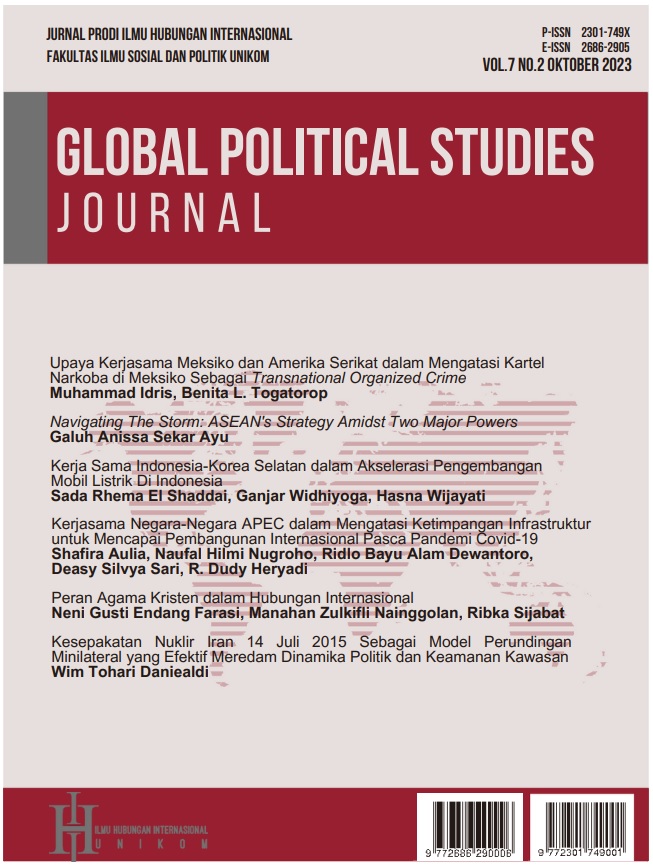Kesepakatan Nuklir Iran 14 Juli 2015 Sebagai Model Perundingan Minilateral yang Efektif Meredam Dinamika Politik dan Keamanan Kawasan
Abstract
Minilateralism is a concept of international relations that involves a small group of countries collaborating to solve problems or achieve common goals. In practice, minilateralism does have weaknesses. One risk is that this can be exclusionary and exacerbate power imbalances, potentially prioritizing short-term interests over long-term goals. Nevertheless, the benefits of minilateralism outweigh its drawbacks. Where minilateralism is a smarter and more targeted approach, namely bringing in the small number of countries needed to be able to have the greatest impact in resolving a particular problem. This is the magic number for minilateralism, which of course will vary greatly, depending on the problem. In the case of the Iran Nuclear Agreement of 14 July 2014, the concept of minilateralism showed its magic. Where tensions that have lasted for more than four decades between the United States and its allies and Iran have succeeded in achieving common interests to produce an optimal agreement.
Keywords—Constructivism, Common Interest, Iran Nuclear Deal 14 July 2014, Minilateralism, Multilateralism












